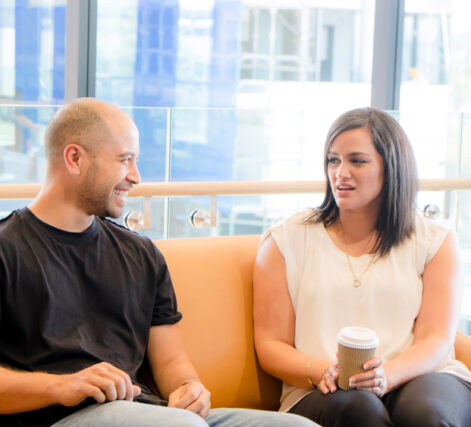Some people are great at putting up a front, but if you’re good at spotting fake behaviour, you probably notice the little tells.

Sure, your intuition might just be especially honed, but it’s more than that. You also have to pay attention to actions, words, and consistency if you really want to catch these people out. Here are 15 signs you’re great at recognising fake people when you see them and protecting yourself from their influence.
1. You trust actions over words.

Fake people often say all the right things, but their actions rarely match up. If you’re someone who watches what people do rather than what they say, you can easily see through their facade. Actions always reveal true intentions more than words ever can.
2. You notice inconsistencies in their stories.

Fake people tend to embellish or twist the truth, and you’re quick to pick up on inconsistencies in their narratives. If something doesn’t add up, you don’t just brush it off—you file it away as a red flag. This attention to detail helps you spot dishonesty early.
3. You pick up on forced smiles or exaggerated emotions.

It’s easy for you to tell when someone’s expressions don’t match their feelings. Whether it’s an over-the-top laugh or a smile that doesn’t reach their eyes, you know when emotions are being faked. This ability helps you differentiate between genuine and insincere people.
4. You’re good at reading body language.

Fake people can’t always control their physical cues. Whether it’s fidgeting, avoiding eye contact, or closed-off posture, their body language often gives them away. You’ve learned to notice these subtle signs, even when their words say otherwise.
5. You sense when someone is overly agreeable.

When someone agrees with everything you say or does everything to please you, it can feel off. You know that real relationships involve honest opinions and occasional disagreements. Over-the-top agreeableness often signals someone isn’t being authentic.
6. You recognise attention-seeking behaviour.

Fake people often crave validation and go out of their way to be the centre of attention. You can spot when someone is trying too hard to impress or steer the conversation back to themselves. Genuine people don’t need constant approval to feel valued.
7. You’re sceptical of sudden, intense flattery.

While compliments can be nice, you know when they’re genuine and when they’re being used to manipulate. Fake people often use excessive praise to gain your trust or favour, but you don’t fall for surface-level charm.
8. You notice when they gossip too much.
 Source: Unsplash
Source: Unsplash Fake people often bond by tearing people down behind their backs. If someone constantly gossips or badmouths other people, you see it as a sign they might do the same to you. You know that true character isn’t built on negativity.
9. You can spot when they mirror your behaviour.
 Source: Unsplash
Source: Unsplash Imitating your likes, interests, or mannerisms to gain your trust is a classic fake move. While some level of mirroring is normal, you notice when it feels calculated. Real connections don’t require someone to pretend they’re just like you.
10. You’re not easily swayed by appearances.
 Source: Unsplash
Source: Unsplash Fake people often rely on surface-level charm, like flashy clothes or a confident demeanour, to mask their insincerity. You know better than to judge someone’s character based on appearances alone. You focus on substance over style.
11. You don’t overlook patterns of self-serving behaviour.
 Source: Unsplash
Source: Unsplash If someone’s actions consistently benefit themselves at the expense of someone else, you take note. Fake people often prioritise their own gain, even if it means stepping on other people, and you’re quick to spot this pattern.
12. You sense when someone avoids vulnerability.
 Source: Unsplash
Source: Unsplash Genuine people aren’t afraid to show their true selves, including their flaws. When someone avoids vulnerability or deflects questions about themselves, it can feel like they’re hiding something. You value authenticity and know when it’s missing.
13. You’re not afraid to trust your gut.
 Source: Unsplash
Source: Unsplash Sometimes, you just feel something is off, even if you can’t immediately pinpoint why. You’ve learned to trust that gut feeling when someone doesn’t seem genuine. Your instincts often guide you toward the truth before the signs become obvious.
14. You notice when their kindness has strings attached.
 Source: Unsplash
Source: Unsplash Fake people often do nice things with the expectation of getting something in return. Whether it’s favours, attention, or loyalty, their generosity always comes with a price. You’re skilled at identifying when kindness isn’t unconditional.
15. You value consistency over grand gestures.

Anyone can make a big show of being generous or kind once in a while, but you look for consistent behaviour over time. Fake people struggle to maintain their facade, and you notice when their actions don’t align with their words over the long haul.




